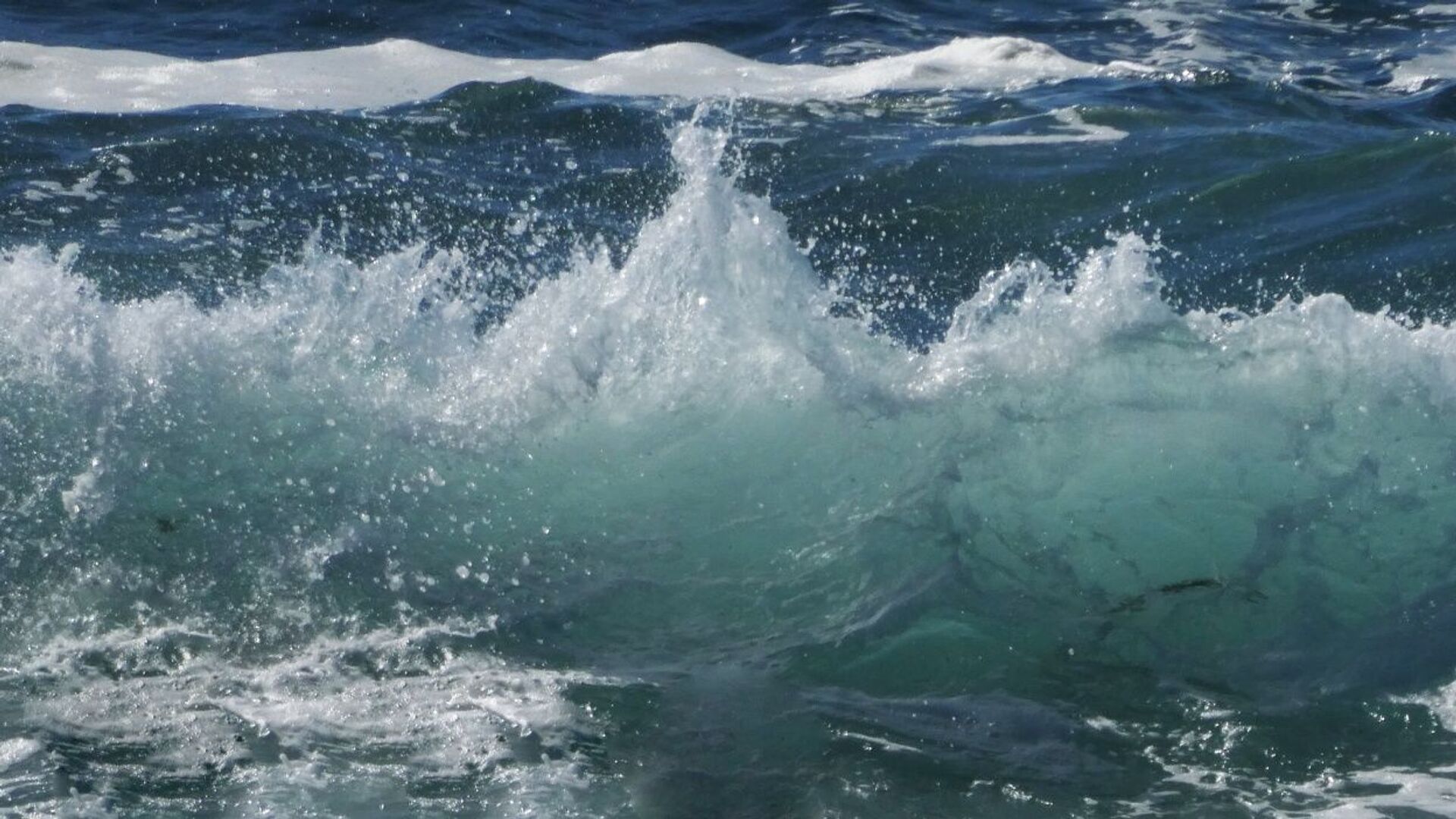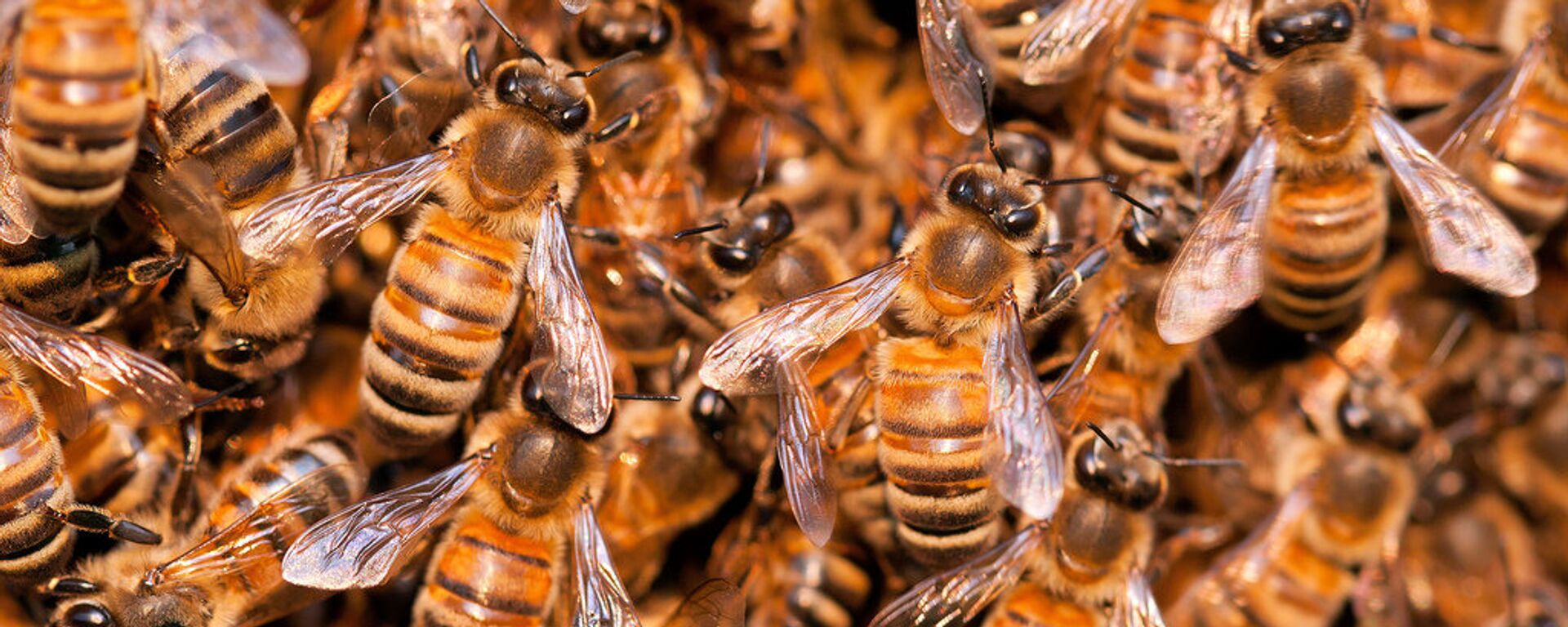https://sputnikglobe.com/20220610/rna-viruses-infecting-sea-creatures-may-affect-carbon-flow-in-ocean-study-says-1096201221.html
RNA Viruses Infecting Sea Creatures May Affect Carbon Flow in Ocean, Study Says
RNA Viruses Infecting Sea Creatures May Affect Carbon Flow in Ocean, Study Says
Sputnik International
The research suggests that RNA viruses infect organisms that extract carbon dioxide from the atmosphere and then take that carbon to the depths of the ocean as... 10.06.2022, Sputnik International
2022-06-10T19:00+0000
2022-06-10T19:00+0000
2022-06-10T19:00+0000
science & tech
ocean
viruses
carbon
https://cdn1.img.sputnikglobe.com/img/07e4/08/0b/1080135280_336:0:1584:702_1920x0_80_0_0_2191abbe09301627b856534e7214477f.jpg
A team of scientists, who earlier this year reported identifying over 5,000 unknown RNA viruses lurking in the ocean, now postulates that such viruses may have quite an impact on the ecosystem.According to Live Science, the research team determined that some 1,200 RNA viruses may be involved in the process of carbon being extracted from the atmosphere and sink to the bottom of the sea when the marine organisms that carbon becomes incorporated into die and end up on the seafloor.The new research suggests that RNA viruses infecting marine organisms may be a “previously unacknowledged factor driving carbon flux in the oceans”, the media outlet notes, as the viruses “alter the cellular activity of the hosts they infect”.These fungi and protists, which serve as hosts to the viruses, then extract carbon dioxide from the atmosphere and thus lead to that carbon being stored in the ocean.Steven Wilhelm, principal investigator of the Aquatic Microbial Ecology Research Group at the University of Tennessee, Knoxville, who was not involved in the study in question, suggested that RNA viruses likely affect the flow of carbon through the ocean."Given the abundance of RNA virus particles, knowing they can do this continues to build the story of how important viruses are in the world with respect to how energy and carbon flow", he told the media outlet.
https://sputnikglobe.com/20220521/newly-discovered-virus-may-wipe-out-global-bee-population-scientists-warn-1095692756.html
Sputnik International
feedback@sputniknews.com
+74956456601
MIA „Rossiya Segodnya“
2022
Sputnik International
feedback@sputniknews.com
+74956456601
MIA „Rossiya Segodnya“
News
en_EN
Sputnik International
feedback@sputniknews.com
+74956456601
MIA „Rossiya Segodnya“
Sputnik International
feedback@sputniknews.com
+74956456601
MIA „Rossiya Segodnya“
science & tech, ocean, viruses, carbon
science & tech, ocean, viruses, carbon
RNA Viruses Infecting Sea Creatures May Affect Carbon Flow in Ocean, Study Says
The research suggests that RNA viruses infect organisms that extract carbon dioxide from the atmosphere and then take that carbon to the depths of the ocean as they die and sink to the seafloor.
A team of scientists, who earlier this year reported identifying over 5,000
unknown RNA viruses lurking in the ocean, now postulates that such viruses may have quite an impact on the ecosystem.
According to Live Science, the research team determined that some 1,200 RNA viruses may be involved in the process of carbon being extracted from the atmosphere and sink to the bottom of the sea when the marine organisms that carbon becomes incorporated into die and end up on the seafloor.
The new research suggests that RNA viruses infecting marine organisms may be a “previously unacknowledged factor driving carbon flux in the oceans”, the media outlet notes, as the viruses “alter the cellular activity of the hosts they infect”.
One of the authors of the study, Guillermo Dominguez-Huerta, who was a postdoctoral scholar in viral ecology at Ohio State University at the time of the research, reportedly said that, based on their work, they are “certainly sure that most RNA viruses in the ocean are infecting microbial eukaryotes, so fungi and protists, and to a lesser extent, invertebrates".
These fungi and protists, which serve as hosts to the viruses, then extract carbon dioxide from the atmosphere and thus lead to that carbon being stored in the ocean.
Steven Wilhelm, principal investigator of the Aquatic Microbial Ecology Research Group at the University of Tennessee, Knoxville, who was not involved in the study in question, suggested that RNA viruses likely affect the flow of carbon through the ocean.
"Given the abundance of RNA virus particles, knowing they can do this continues to build the story of how important viruses are in the world with respect to how energy and carbon flow", he told the media outlet.


